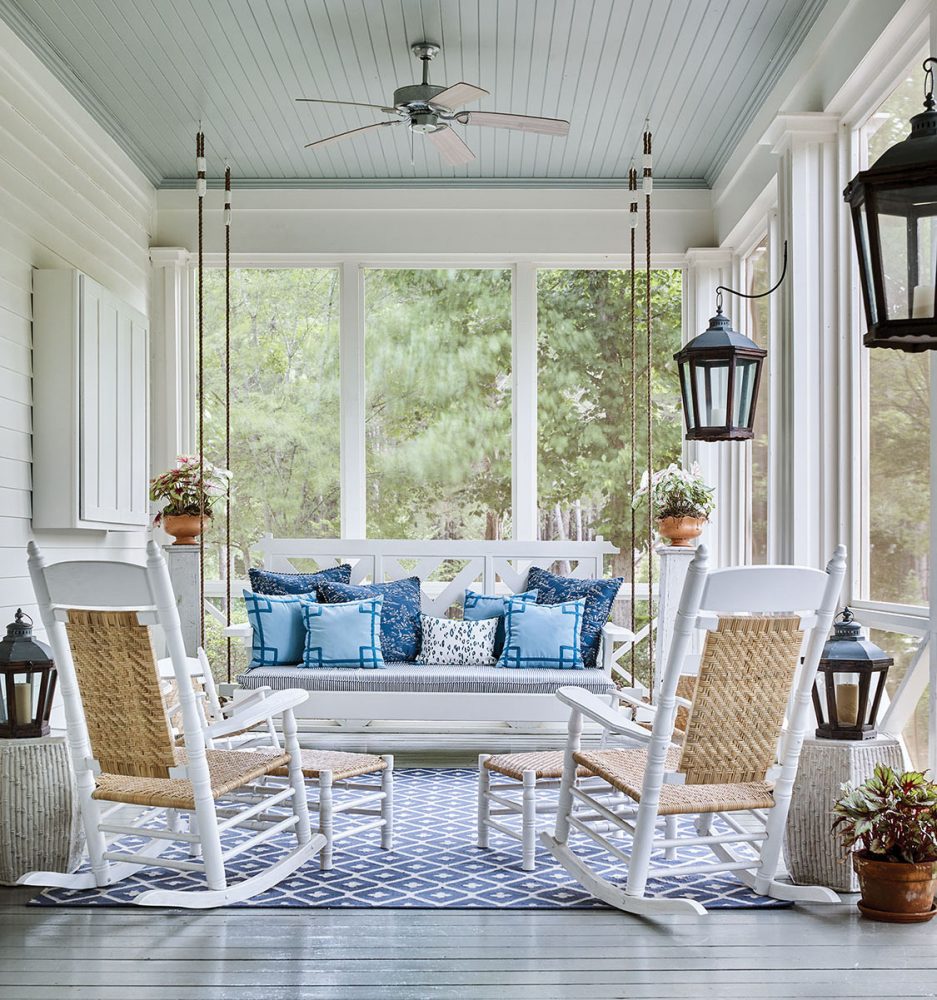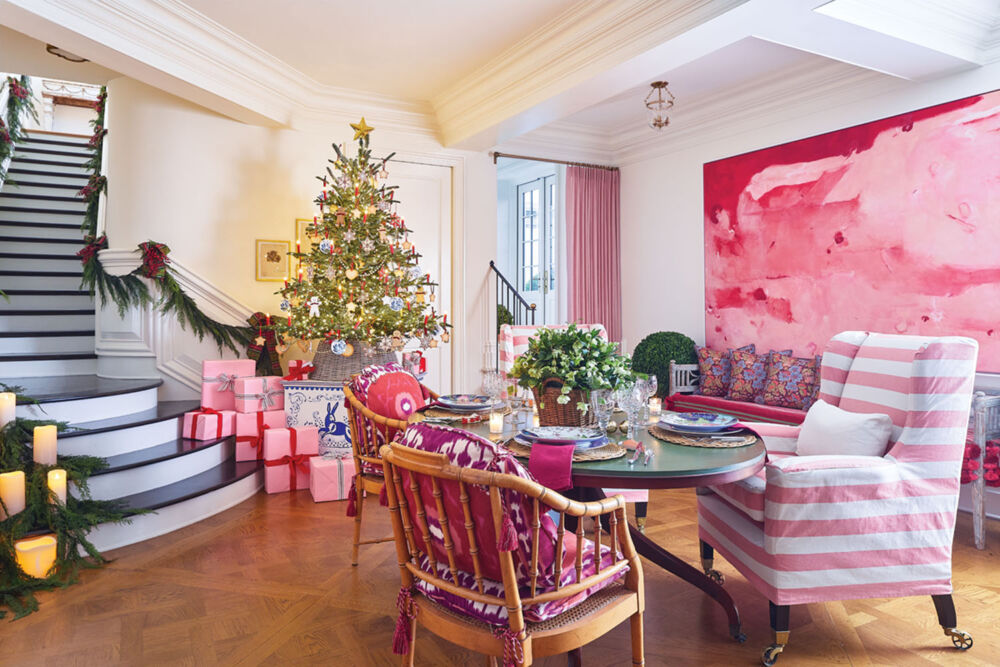[vc_row][vc_column][vc_single_image image=”250435″ img_size=”full”][vc_column_text css=”.vc_custom_1636573910820{margin-top: -15px !important;border-top-width: -15px !important;padding-top: -15px !important;}”]
[/vc_column_text][/vc_column][/vc_row][vc_row][vc_column width=”2/3″][vc_column_text]The sheer abundance of autumn makes it heaven for flower arrangers. There is never a better time to create a dramatic “spilly” urn overflowing with flowers and foliage cut from the garden. Forage for branches dripping with berries or hips, or shrubs with foliage that boasts amazing autumnal hues. Roses, full blown and slightly battered by the cooler weather, add wonderful texture and interest. The shapes in this particular arrangement should be relaxed and inviting—it’s all about the elegant slump.[/vc_column_text][/vc_column][vc_column width=”1/3″][vc_single_image image=”250446″ img_size=”full” onclick=”custom_link” img_link_target=”_blank” link=”https://www.amazon.com/gp/product/1788793846/ref=as_li_tl?ie=UTF8&camp=1789&creative=9325&creativeASIN=1788793846&linkCode=as2&tag=flow0a7-20&linkId=c3a06f9f7c1b1b1f06d613ce81918fbc”][/vc_column][/vc_row][vc_row][vc_column][vc_column_text]
An Autumnal Urn
[/vc_column_text][vc_column_text]You will need
- A suitable vessel. Use whatever feels right for you, but bear in mind that an urn or vase with a wide, low rim will allow flowers to tumble loosely over the side.
- A piece of rubber pond liner
- Floral fix* and floral tape
- Chicken wire and/or a floral pin frog to hold heavy stems in place
- Floral snips*
[/vc_column_text][vc_column_text]Flowers and stems
- Structural branches: 3 or 4 branches. Look for branches with leaves that are changing color, such as Physocarpus opulifolius ‘Diabolo’ or Cotinus coggygria (smoke bush).
- Filler flowers: 4 or 5 stems. The last of the garden roses are big and generous. I’m using Rosa ‘Desdemona’.
- Focal flowers: 15 blooms. I’m using the last of the autumn dahlias and Chrysanthemum ‘Allouise Salmon’.
- Gestural moments: a handful. These wispy stems will give your arrangement a final flourish. I have snipped a few stems of Euonymus europaeus (spindle tree), Stipa tenuissima ‘Pony Tails’, and acer leaves.
[/vc_column_text][/vc_column][/vc_row][vc_row][vc_column][vc_single_image image=”250428″ img_size=”full”][vc_column_text]
Step 1 and 2
Choose your vessel or urn, thinking carefully about the desired shape of the arrangement. Here, I’m using a wide urn that allows the flowers to gracefully tumble over the sides. None of my urns are watertight, so I’ve used an offcut of rubber pond liner to line this one. Using floral fix, I attach a floral pin frog to the bottom to hold heavy stems in place. Now cut a piece of chicken wire to fit into the urn and secure it with floral tape.[/vc_column_text][/vc_column][/vc_row][vc_row][vc_column][vc_column_text]
Step 3
Once the urn is filled with water, I start to add the structural branches. Here, I’m using Physocarpus opulifolius ‘Diabolo’ to create a sweeping shape on the left. This is an easy-to-grow shrub that favors a well-drained ground. It has small pinky-white flowers in summer, but I like it for its deep burgundy foliage, which softens slightly in the autumn and produces a range of browns and reds before the leaves fall off. It can have quite stiff, upright stems, but older stems at the base of the shrub tend to have a longer, more graceful shape. Next, I push in some Cotinus coggygria ‘Royal Purple’ to the right— another fabulous shrub much loved by florists. It produces hazy plumes in summer, hence its common name of smoke bush.[/vc_column_text][vc_single_image image=”250429″ img_size=”full”][/vc_column][/vc_row][vc_row][vc_column][vc_column_text]
[/vc_column_text][/vc_column][/vc_row][vc_row][vc_column][vc_column_text]
Step 4
I continue to add pieces of foliage at the sides, building up a bit of drama and adding contrast with the yellowing leaves of Cercidiphyllum japonicum. I am keeping the middle section quiet, so there is space for small focal flowers.[/vc_column_text][vc_single_image image=”250430″ img_size=”full”][/vc_column][/vc_row][vc_row][vc_column][vc_column_text]
Step 5
My filler flowers are Rosa ‘Desdemona’. I grow as many roses as I can and use them from June through late October, but if you are going to plant just one shrub rose in your garden, then ‘Desdemona’ is the one. When arranging the roses, I look at the way they hang before I add them to the urn. I want them to appear as if they are tumbling over a wall in wild abandon.[/vc_column_text][vc_column_text]
Step 6
I place a few smaller pink rosettes of Rosa ‘Cornelia’ to the left-hand side to catch the light and break up the hard lines of the structural branches.[/vc_column_text][vc_single_image image=”250431″ img_size=”full”][/vc_column][/vc_row][vc_row][vc_column][vc_column_text]
Step 7
To balance the structure, I push in a sprig of Euonymus europaeus (spindle tree) berries to draw the eye to the right.[/vc_column_text][vc_single_image image=”250433″ img_size=”full”][/vc_column][/vc_row][vc_row][vc_column][vc_column_text]
Step 8
Now I start to add larger focal flowers, in this case dahlias and chrysanthemums. I want the arrangement to read from left to right, with color, shape, and form effortlessly carrying your eye across the arrangement as if it were a painting. Each flower needs room to breathe. Think about how plants look together in the garden. Which direction would they naturally grow? How would they reach for the light?[/vc_column_text][vc_single_image image=”250432″ img_size=”full”][/vc_column][/vc_row][vc_row][vc_column][vc_column_text]
Step 9
I continue to push in smaller flowers to fill gaps or soften harsh lines. Once the bulk of the arrangement is in place, I break up the lines of stems by adding wispy grasses and dried flowers, in this case a branch of pale yellow acer leaves to the left, a couple of strands of Stipa tenuissima ‘Pony Tails’ that look like a puff of smoke, and two stems of dried astilbe flowers.[/vc_column_text][vc_single_image image=”250434″ img_size=”full”][/vc_column][/vc_row][vc_row][vc_column][vc_column_text]
Step 10
When you think you have finished, take a break. Go and make a cup of tea, then come back. It’s amazing what you’ll see with fresh eyes. Does the arrangement work proportionally? While it doesn’t need to be symmetrical, it should be balanced.[/vc_column_text][/vc_column][/vc_row][vc_row][vc_column][vc_column_text]
Step 11
To finish, I have added a few luscious semi-double Dahlia ‘Karma Fuchsiana’ and a graceful strand of dried perennial sweet pea on the right, plus a handful of tomatoes scattered around the base of the urn in the manner of a Dutch still life. Now the urn is ready for its moment in the limelight. I have photographed it against a dark background, with the low autumn sun catching the vibrant pink of the dahlias.[/vc_column_text][vc_single_image image=”250435″ img_size=”full”][/vc_column][/vc_row][vc_row][vc_column][vc_separator border_width=”3″][vc_column_text]Excerpted from The Flower Hunter: Seasonal Flowers Inspired by Nature and Gathered from the Garden by Lucy Hunter (Ryland Peters & Small, 2021).
Photographs: © Lucy Hunter
*Floral fix, a waterproof adhesive, might be labeled floral putty or florist clay. Snips are scissors or clippers.[/vc_column_text][vc_row_inner][vc_column_inner][vc_column_text]
More Fall Arrangements
[/vc_column_text][/vc_column_inner][/vc_row_inner][/vc_column][/vc_row]




